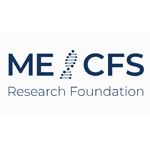In January 2024, a new research project on biomarkers and the disease mechanisms of ME/CFS (Myalgic Encephalomyelitis / Chronic Fatigue Syndrome) will start at the Institute of Medical Immunology at the Charité – University Medicine Berlin. The project entitled "cell morphology, cell deformability and microclots in ME/CFS" is the doctoral project of Annick Fehrer, biochemist and member of the working group of Prof. Carmen Scheibenbogen.
The project will be funded over a period of three years by the ME/CFS Research Foundation and the Lost Voices Foundation (Lost Voices Stiftung)which cover 2/3 and 1/3 of the funding respectively. The project is the first joint funding by the two foundations.
Updates:
- 13.02.2024 The project is listed in the ME/CFS Research Register , with links to the participating researchers, working groups, etc.
- 28 Jun 2024 In three interviews, the researchers involved in the project provide further insights into this exciting project and explain the background, objectives, process and content of their ongoing research (link to the article).
Project goals and work programme:
The project will investigate potential changes to the shape (morphology) and deformability of blood cells as well as the occurrence of so-called microclots in ME/CFS patients. The project will be implemented in close cooperation with Prof. Jochen Guck and Dr. Martin Kräter, researchers at the Max Planck Institute for the Physics of Light in Erlangen.
The project is also investigating whether cell morphology, cell deformability and microclots can be used for diagnosis and as prognostic markers in clinical trials for the treatment of ME/CFS.
The work programme of the project is divided into three topics:
First topic: Using deformability cytometry technology, blood samples from a total of 500 patients will be examined. The investigation will cover samples from patients with ME/CFS after COVID-19 as well as other infectious triggers. Samples from age- and gender-matched control subjects, who were ill with COVID-19 but did not develop persistent symptoms, will be used for comparison. In addition, samples from patients who are already taking part in ongoing treatment studies by the National Clinical Study Group (NKSG) will be analysed. For this purpose, samples from patients will be examined before and after completion of treatment. By doing so, the researchers hope to gain insights into the possible influence of changes in blood cells and the occurrence of microclots on the effect of different treatment approaches. The results are then analysed in conjunction with other clinical measurements and laboratory values.
Second topic: Another aim of the project is to determine whether ME/CFS can be distinguished from other diseases (multiple sclerosis or tumor diseases) by detecting changes in blood cells and microclots. Additionally, samples from patients with a previous COVID-19 illness will be examined to see whether SARS-CoV-2-specific spike protein can be detected in microclots. The obtained biomarkers will then be analysed further for their suitability for the specific diagnosis of ME/CFS and post-COVID syndrome.
Third topic: In order to better understand the causes of cell changes and the occurrence of microclots, blood samples will undergo in-depth analysis in order to investigate changes to the inner walls of blood vessels (endothelium) and the coagulation system, as well as to uncover the occurrence of autoantibody-induced blood coagulation and the persistent presence of bacteria or viruses (e.g. SARS-CoV-2 or Epstein-Barr virus proteins). Laboratory tests will also be used to investigate how the administration of blood plasma from samples from different patient cohorts affects cultures of healthy cells (in vitro).
Why do we fund this project?
The project fulfils the objectives defined in the funding strategy of the ME/CFS Research Foundation . The project's focus and research objectives correspond to the priorities identified in the guidelines issued by the German Society for ME/CFS and Long COVID Germany . Both, ME/CFS Research Foundation and the Lost Voices Foundation fully support these guidelines. Another important factor is the inclusion of samples from patients with ME/CFS after different infectious triggers. In addition, close cooperation with the Max Planck Institute for the Physics of Light in Erlangen offers an opportunity for interdisciplinary networking and expansion of the ME/CFS research landscape at the interface of excellent clinical research and basic research.
The deformability cytometry technology applied under the project was further developed at the Max Planck Institute for the Physics of Light in Erlangen. Dr. Martin Kräter presented the technology in more detail in his poster presentation at the International ME/CFS Conference in Berlin in May 2023. At the conference, the researcher received the first prize for his poster, presenting results from blood sample tests. The prize was awarded by the Lost Voices Foundation.
As of today, there is no approved treatment for ME/CFS, nor have the disease mechanisms been sufficiently clarified or biomarkers for diagnosis been transferred into clinical practice. With the first joint funding project by the ME/CFS Research Foundation and the Lost Voices Foundation, we are therefore pleased to be able to make an important contribution to advancing research into the disease mechanisms, with direct implications for future diagnosis and the development of effective treatment options.
Following the project's start in early 2024, the ME/CFS Research Foundation will report in more detail on the project and provide deeper insights into the research work of those involved(project description on Charité Fatigue Centre's website).).
How can you support the work of the ME/CFS Research Foundation?
There is still a long way to go before diagnosis, care and treatment of ME/CFS patients will one day become a medical and social standard. We at the ME/CFS Research Foundation are focussing on biomedical research, which we see as the key element in solving these problems (more on this in our research funding strategy). To do this, we need extensive support from private donors - patients, relatives, families, friends, associations, schools, networks, companies, initiatives, event organisers and all supporters. And if you can't support us directly, maybe you can share our story and motivate others to help. Because only together is such a feat possible.
We fully translate donations and other support into scientifically excellent research, networking and ultimately visible successes, i.e. better ME/CFS diagnostics and therapies. We are happy to work together with other organisations and initiatives - please contact us!
We appreciate all kinds of Support!
Please register for our Newsletter:






